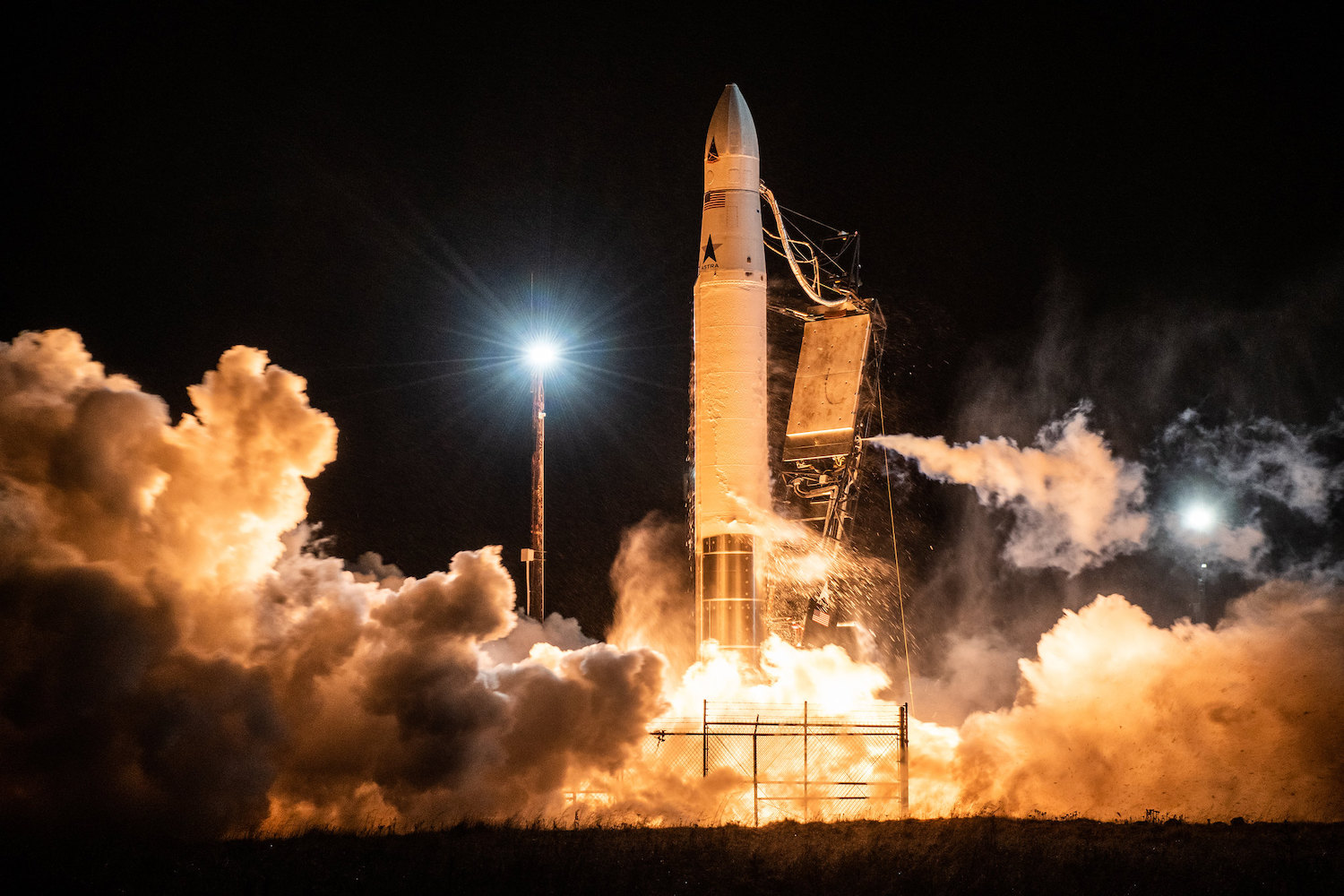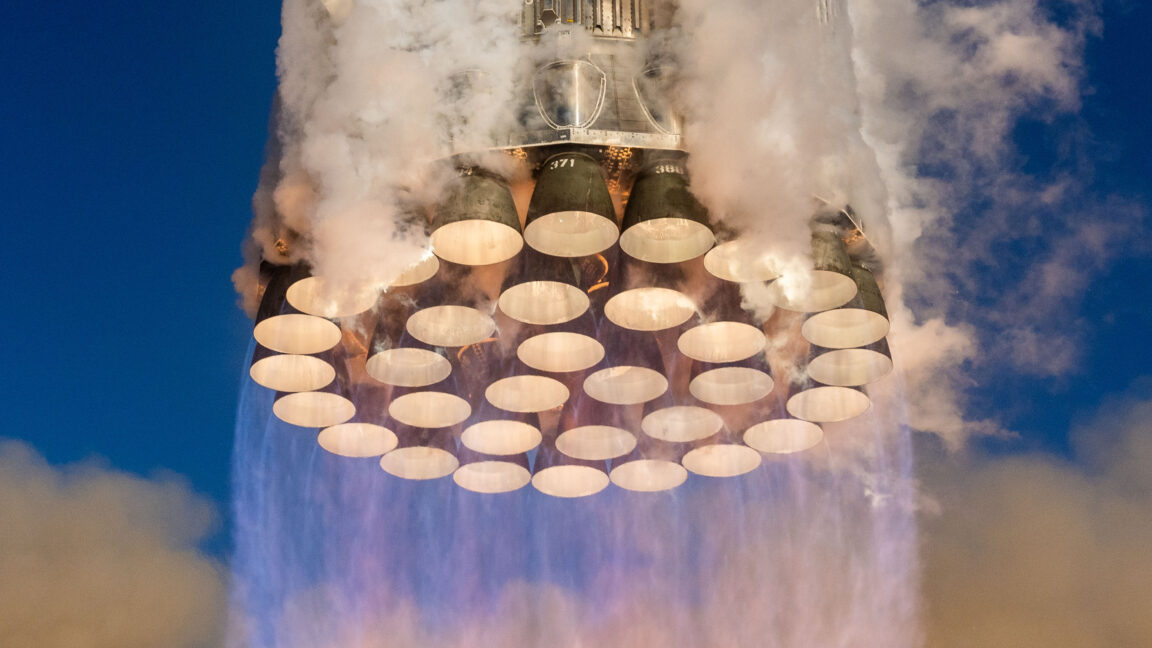Over the last two years, Astra has become one of just a handful of the dozens of startup launch companies to actually put something into orbit. This is a measure of the technical acumen of Astra engineers, who set out to execute on the vision of the company's co-founders, Chris Kemp and Adam London.
During the same period, Astra's financials have taken a nose dive. When Astra went public in mid-2021, it had a valuation of $2.6 billion. The company's market value is around $25 million, based on Astra's closing price on the Nasdaq stock exchange.
A week ago, Astra's market value was even lower. The number rose after Astra revealed Thursday that Kemp and London made an offer to take the company private in a bid to save the startup they established in 2016.
"We believe that Astra’s strategic objectives and business prospects will be best served as a private company," Kemp and London wrote in a letter to Astra's board of directors. "Taking the company private while delivering a meaningful premium to current shareholders allows for the best interests of shareholders as well as the Company, its employees and its customers to be met."
Kemp, who worked at NASA before co-founding Astra, spoke with Ars in August about the company's future. He declined to speak with Ars again while the company considers his offer to take Astra private. Astra also canceled a scheduled quarterly earnings call with investment analysts on Monday.
Two years of decline
In their offer, Kemp and London, an expert in miniature rocket engines, wrote that they anticipate raising $60 million to $65 million in capital for Astra, based on their proposed purchase price per share, cash consideration to shareholders, and other factors. They wrote that this will provide "sufficient incremental capital to allow Astra to meet its strategic and financial objectives as a privately held company."
It's not clear how long it will take for Kemp and London to complete their "due diligence" before finalizing the terms of the transaction, but their familiarity with the company—Kemp is CEO, and London is the chief technology officer—should help things go quickly.
Headquartered in Alameda, California, Astra went public via a merger with a special-purpose acquisition company (SPAC) in mid-2021. Astra had plans to develop a small satellite launcher that could fly cheaper and faster than any other orbital-class rocket ever built. At one time, Astra's executives said the company would fly its rocket so often and at such a low cost that customers might accept that occasional failure.
But the rocket was not a success for Astra, and the company abandoned its Rocket 3 launch vehicle after a series of failures. This year, Astra hoped to move forward with a new, somewhat larger rocket called Rocket 4, but the company's dwindling cash reserves forced officials to lay off 25 percent of its workforce and shift focus to producing electric thrusters for small satellites, a business that has real customers.
In August, Kemp told Ars that it wasn't fair to say Astra was in a fight for its survival.
"I could characterize the launch business at Astra as fighting for its survival, but I wouldn’t characterize Astra as fighting for its survival," Kemp said. "Astra has always had the option of just stopping the launch business."
In seven orbital launch attempts, Rocket 3 failed five times, but some of these launches were test flights without functioning satellites on board. Astra moved on from Rocket 3 after a launch failure in June 2022 destroyed two NASA hurricane research satellites. Nevertheless, Astra's successful missions put the company in a small group of a new wave of startups that have achieved orbit, alongside Rocket Lab, Firefly Aerospace, and Virgin Orbit, which went bankrupt earlier this year.
The launch business is central to Kemp and London's vision for Astra, so they don't want to give up on it. The company does have a launch contract with the US Space Force. "That’s an $11.5 million contract, millions of dollars of cash comes in, in advance of launch, because of the milestones we’re achieving," Kemp said.
But Astra hasn't secured the funding necessary to go full speed on Rocket 4 development.
Bloomberg reported in October that Astra was considering selling off a majority stake in its in-space propulsion business to help shore up Astra's tenuous financial situation, at least in the short term, as the company appeared to be just months away from running out of money.
Earlier this month, Astra reported in an SEC filing that it defaulted on a loan as its cash reserve dropped below $10.5 million. A few days later, the company said it raised approximately $13.4 million from a pair of investors to pay off the loan.
Then, on Thursday, Astra announced Kemp and London's offer to take the company private. This capped a rocky week for the company, and the story isn't over.
Analysts have long predicted that the dozens of new startup launch companies would face a time of reckoning. There have been signs of that this year with the folding of Virgin Orbit and Astra's financial woes. Fundraising from private equity or venture capital firms isn't as easy as it was a few years ago due to higher inflation and higher interest rates.
Other companies, like Rocket Lab and Firefly, are having more success, with Rocket Lab becoming the clear leader in the small launch industry. In September, Firefly demonstrated a responsive small satellite launch capability for the US Space Force. Relativity Space is backed by $1.3 billion in private investment, more than any other launch startup. It abandoned its small launcher after a test flight in March and is moving ahead with the development of a much larger partially reusable rocket, called Terran R.
But all these companies face a common threat: SpaceX. Elon Musk's space company has launched a series of "Transporter" rideshare missions on its larger Falcon 9 rocket, aggregating large numbers of small satellites to bring the cost per kilogram down to levels that Rocket Lab, Firefly, and others can't reach.
"I can't understate what a critical part of the NewSpace industry Transporter missions are," wrote Todd Master, the chief operating officer of the Earth observation company Umbra Space, on X. "What began with CubeSat rideshare on other launchers has evolved into a low cost, quarterly-ish ride for about a million bucks for 100 kg (220 pounds of payload).
"There are entire businesses that are enabled by this that could not have existed five years ago," Master wrote. "This critical part of the space industry is enabled by SpaceX's focused efforts on reuse that make these types of launches economically viable. It's intriguing to consider how consequential a single company's contribution is to kick-starting a whole economic ecosystem."


